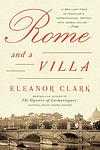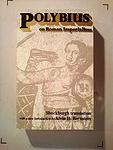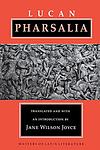The Greatest "Rome, History" Books of All Time
Click to learn how this list is calculated.
This list represents a comprehensive and trusted collection of the greatest books. Developed through a specialized algorithm, it brings together 300 'best of' book lists to form a definitive guide to the world's most acclaimed books. For those interested in how these books are chosen, additional details can be found on the rankings page.
Genres
The category of "Rome" in books refers to literature that is set in ancient Rome or focuses on the history, culture, and society of the Roman Empire. These books may include historical fiction, biographies, memoirs, and academic works that explore the political, social, and economic aspects of Rome. The genre may also encompass stories of gladiators, emperors, soldiers, and other figures from Roman mythology and history. Overall, the category of "Rome" offers readers a glimpse into one of the most influential civilizations in human history.
The category of "History" in books refers to the study and interpretation of past events, societies, and cultures. It encompasses a wide range of topics, including political, social, economic, and cultural developments, as well as the lives of individuals and groups who have shaped the course of history. History books can be written from various perspectives and may focus on specific time periods, regions, or themes. They aim to provide readers with a deeper understanding of the past and its impact on the present.
Countries
Date Range
Reading Statistics
Click the button below to see how many of these books you've read!
Download
If you're interested in downloading this list as a CSV file for use in a spreadsheet application, you can easily do so by clicking the button below. Please note that to ensure a manageable file size and faster download, the CSV will include details for only the first 500 books.
Download-
1. Memoirs of Hadrian by Marguerite Yourcenar
"Memoirs of Hadrian" is a historical novel that presents a fictional autobiography of the Roman Emperor Hadrian, who reigned from 117 to 138 AD. Narrated in the first person, the novel explores Hadrian's ascension to the throne, his administration, his love for the young Antinous, and his philosophical reflections on life and death. The narrative is framed as a letter to his successor, Marcus Aurelius, offering insights into the complexities of power, the nature of leadership, and the human condition.
-
2. The Decline and Fall of the Roman Empire by Edward Gibbon
This historical work provides a comprehensive perspective on the fall of the Roman Empire, examining its decline from the height of its power in the second century A.D. through the fall of Constantinople in 1453. The author meticulously chronicles the empire's deterioration due to a variety of factors, including moral decay, economic crisis, military incompetence, barbarian invasions, and internal power struggles, while also offering insightful commentary on the broader implications for Western civilization.
-
3. Parallel Lives by Plutarch
"Parallel Lives" is a collection of biographies of famous Greek and Roman figures, written in pairs to draw comparisons between their lives. The work explores the influence of character on the lives and destinies of these historical figures. The biographies are not only a record of the lives of these individuals, but also provide insight into the times in which they lived, offering a unique perspective on the history and culture of the ancient world.
-
4. Lives of the Caesars by Suetonius
"Lives of the Caesars" is a historical narrative that provides a detailed account of the personal and public lives of the first twelve Roman emperors, from Julius Caesar to Domitian. The author presents a vivid depiction of their character, behavior, appearance, and private lives, as well as their political actions, military exploits, and administrative policies. The book is a valuable source of information about the Roman Empire's early days, offering a unique perspective on the power, corruption, and extravagance of the Roman elite.
-
5. Histories by Cornelius Tacitus
"Histories" is a comprehensive account of the Roman Empire from 69-96 AD, a period marked by significant political turmoil. It provides an in-depth look at the reigns of four emperors: Galba, Otho, Vitellius, and Vespasian, along with the social and political upheavals of the time. The narrative also covers the Jewish rebellion and the burning of the Jerusalem Temple, offering a rich historical context of the period. Despite some gaps in the record, it remains a crucial primary source for understanding this era of Roman history.
-
6. Germania by Cornelius Tacitus
"Germania" is a historical and ethnographic work that provides a detailed description of the lands, customs, and tribes of the Germanic people in the first century AD. The author, a Roman historian and senator, offers a comprehensive account of the geography, anthropology, social institutions, and military practices of the Germanic tribes, often comparing their culture and values to those of the Romans. The work is considered a valuable source of information about the ancient Germanic tribes, despite its possible biases and inaccuracies.
-
7. Titi Livi Ab urbe condita libri by Livy
This historical work offers a comprehensive narrative of the history of Rome, from its mythical origins to the reign of the Roman Emperor Augustus. The author chronicles the major political, military, and social events of the Roman Republic, including the founding of the city, the establishment of the Republic, the Punic Wars, and the rise of Julius Caesar. The book is a significant source of information about the early history of Rome and is often considered one of the most important works of Roman history.
-
8. Death in Rome by Wolfgang Koeppen
"Death in Rome" is a post-World War II novel that explores the lives of a German family, their friends, and associates during a reunion in Rome. Each character is representative of a different aspect of German society, and their interactions and experiences in the city serve as a commentary on the nation's struggle to come to terms with its recent past. The book also explores the themes of guilt, denial, and the lingering effects of war.
-
9. Catiline Orations by Marcus Tullius Cicero
"Catiline Orations" is a series of speeches given by a renowned Roman statesman, which were aimed at exposing and condemning the conspiracy led by Lucius Sergius Catilina. The speeches, delivered in the Roman Senate, are a masterful display of oratory skills and political acumen, as the statesman successfully manages to turn the Senate against Catiline, ultimately leading to his downfall. The book offers an in-depth study of these speeches, providing valuable insights into Roman politics, rhetoric, and the art of persuasion.
-
10. Rome And A Villa by Eleanor Clark
This book is a rich and evocative travel memoir that takes the reader on a journey through the timeless beauty and layered history of Rome and its surroundings. The author, with a keen eye for detail and a deep appreciation for art and architecture, shares her experiences and observations as she explores the Eternal City and resides in an ancient villa. Through her lyrical prose, the narrative delves into the intermingling of past and present, revealing the city's enduring allure and the author's personal reflections on the cultural and historical tapestry that defines Rome.
-
11. Leo Africanus by Amin Maalouf
This historical novel follows the life of a real-life Andalusian-born traveler of the 16th century, who is captured by Christian pirates and presented as a gift to the Pope. Renamed after the pontiff, he becomes a respected scholar and diplomat, navigating the complex cultural and religious divides of the Mediterranean world. Throughout his journeys, which take him from his birthplace in Granada to Fez, Timbuktu, Constantinople, and Rome, he witnesses the tumultuous events of his time, including the fall of Granada and the rise of the Ottoman Empire. His story is one of identity, belonging, and the universal quest for knowledge and understanding amidst a backdrop of conflict and change.
-
12. Catiline's War, The Jugurthine War, Histories by Sallust
This book is a combination of three works by a Roman historian and politician, focusing on the political and military events of the late Roman Republic. It first covers the conspiracy led by Catiline in 63 BC, then shifts to the war against Jugurtha in North Africa, and finally provides a fragmentary history of Rome from 78-67 BC. The author uses these events to critique the moral decay of Rome, highlighting the corruption, greed, and ambition that he believed led to the fall of the Republic.
-
13. The Histories by Polybius
"The Histories" is a comprehensive account of the rise of the Roman Empire, focusing on the period from 264-146 BC. The author, a Greek statesman, provides a detailed analysis of the political, military, and social structures of Rome, attributing its success to a balanced constitution and superior military organization. The work also includes first-hand accounts of several significant events, such as the Third Punic War and the Numantine War.
-
14. The Lost Painting by Jonathan Harr
"The Lost Painting" tells the story of a lost masterpiece by Italian Baroque artist Caravaggio, titled "The Taking of Christ." The book follows the journey of a young art historian, Francesca Cappelletti, as she sets out to uncover the painting's whereabouts. Along the way, she encounters a cast of characters including art dealers, art historians, and even a mafia boss. Through meticulous research and a bit of luck, Cappelletti finally locates the painting in a Dublin Jesuit house, where it had been hanging for centuries, unrecognized as a Caravaggio. The book is a captivating tale of art history, detective work, and the power of obsession.
-
15. Pharsalia by Lucan
"Pharsalia," also known as "The Civil War," is an epic poem that delves into the intense and tumultuous period of the Roman Republic's downfall, focusing on the conflict between Julius Caesar and Pompey the Great. The narrative, rich in rhetorical and dramatic elements, presents a grim and philosophical reflection on the nature of power, the moral decay of Rome, and the catastrophic consequences of civil strife. Through its vivid and often gruesome depictions of battles, political intrigue, and the personal ambitions that drive men to treachery and violence, the poem serves as a cautionary tale about the fragility of political systems and the human cost of war.
-
16. Mark Antony by Robert Garnier
The book in question is a classic French Renaissance tragedy that delves into the complex and tumultuous life of a renowned Roman general and politician. Set against the backdrop of the Roman Empire's decline, the narrative explores themes of love, power, betrayal, and the tragic consequences of human flaws. The protagonist's story is one of a passionate and ill-fated love affair with a foreign queen, political strife, and the ultimate downfall of a once-great leader. Through poetic language and dramatic scenes, the play examines the intricate interplay between personal desires and the harsh realities of political life, leading to a catastrophic end that reflects on the nature of fate and the inescapable flaws of humanity.
-
17. Cleopatra: A Life by Stacy Schiff
"Cleopatra: A Life" by Stacy Schiff is a detailed biography of one of the most famous and enigmatic figures in history, Cleopatra VII of Egypt. The book explores her life from childhood to her reign as queen, her relationships with Julius Caesar and Mark Antony, and her eventual downfall. Schiff uses primary sources and historical records to paint a vivid picture of Cleopatra's world and dispel many of the myths surrounding her life. The book also delves into the political and cultural context of ancient Egypt and Rome, providing a fascinating glimpse into a bygone era.
-
18. Claudius The God by Robert Graves
"Claudius The God" is a historical novel that follows the life of Emperor Claudius, who unexpectedly rises to power in ancient Rome. Written as an autobiography, the book provides a unique perspective on the inner workings of the Roman Empire and the challenges faced by Claudius as he navigates political intrigue, assassination attempts, and the complexities of ruling a vast empire. With a blend of fact and fiction, the novel offers a vivid portrayal of Claudius' reign and the tumultuous era in which he lived.
-
19. Rubicon by Tom Holland
This historical narrative delves into the tumultuous period of the late Roman Republic, chronicling the rise and fall of some of its most iconic figures, such as Julius Caesar, Cicero, and Augustus. The book captures the political intrigue, military campaigns, and civil unrest that led to the demise of the Republic and the birth of the Roman Empire. Through vivid storytelling, it explores the complex interplay of personalities and events that shaped the course of Western civilization, offering a detailed look at the power struggles and societal transformations of ancient Rome.
-
20. Caravaggio by Andrew Graham Dixon
This book provides an in-depth exploration of the life and work of the revolutionary Italian painter known for his dramatic use of light and shadow, which came to define the Baroque style of painting. The biography delves into the artist's tumultuous personal life, marked by violent encounters and a temper as fiery as his groundbreaking artistic talent. Through meticulous research, the author reconstructs the painter's journey from his humble beginnings to his rise to fame and his ultimate tragic downfall, offering insights into his masterpieces and his enduring influence on the art world.
Reading Statistics
Click the button below to see how many of these books you've read!
Download
If you're interested in downloading this list as a CSV file for use in a spreadsheet application, you can easily do so by clicking the button below. Please note that to ensure a manageable file size and faster download, the CSV will include details for only the first 500 books.
Download


















